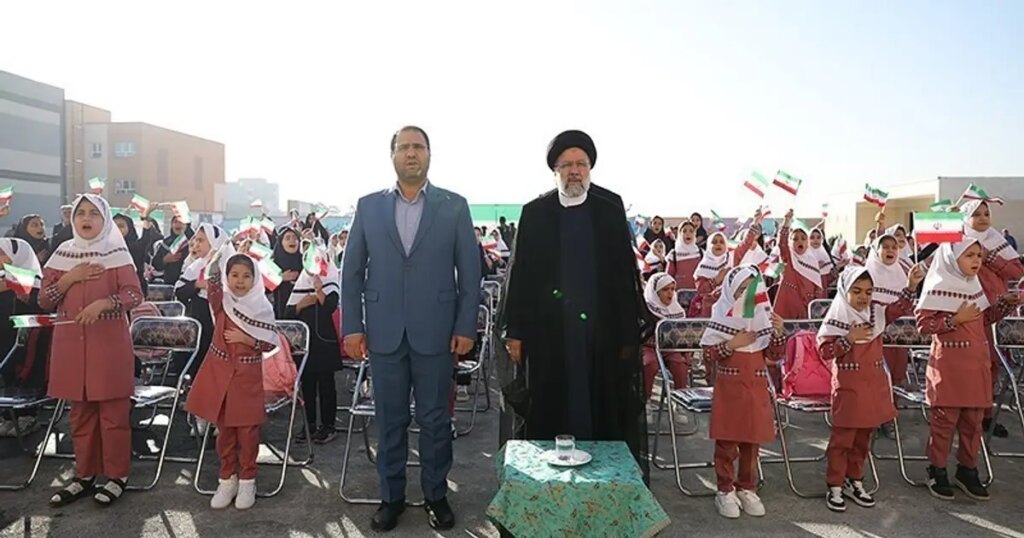The Islamic Republic's education minister has criticized UNESCO's 2030 education agenda, which promotes “gender equality,” as contradicting Iranian culture.
Minister Reza Morad Sarai continued his criticism, telling the state-run Tasnim news agency that the document was “dictated from outside” and that under Ebrahim Raisi's government it was “completely excluded from any planning process.” ” he said.
The United Nations 2030 Agenda for Sustainable Development is a set of standards developed by UNESCO that provides children and young people with a basic understanding of the environment, human rights and the elimination of discrimination in society.
The United Nations General Assembly adopted this document in September 2015, which aims to improve the quality of education around the world. The document was signed by member states, agreeing to anticipate funding needed to improve education, prevent child abuse and promote gender equality.
The Iranian government signed this document under the former president Hassan Rouhani (2013-2021), as Supreme Leader Ali Khamenei explicitly criticized the system, claiming that it promotes a “defective, destructive and corrupt Western lifestyle.” The system was not implemented.
in a lecture 2022 UNESCO Summit, the country's current president, Ebrahim Raisi, described the 2030 education plan as “one-dimensional and secular.” He said the Islamic Republic had drafted its own “transformation” document based on the “Iranian Islamic philosophy of education.”
A year later, the Supreme Council of the Cultural Revolution of Iran (SCCR) issued a resolution called the “Withdrawal of the 2030 Document.” The SCCR is the administration's policy agency responsible for developing and formulating science, education, religion, and research strategies. In 2023, european union Britain specified this Organizations not selected Responsible only to Ali Khamenei.
Since the 1979 Islamic Revolution, the state has been relentless Tried to indoctrinate Iranians but failed Instilled Islamist ideology through the country's education system.
Following the significant involvement of young people in nationwide anti-regime protests in 2022, the state “purge” It is targeting thousands of employees within the country's education system, with the aim of removing individuals seen as a threat.
A large number of teachers who supported the protests were expelled from school, and many were forced to take early retirement. 3,500 clergy and seminarians Instead, they were hired as teachers to fill some of the tens of thousands of new positions created to address the problem. shortage.
Education Ministry spokesperson Ali Farhadi said the ministry was aware of the recruitment for the first time. “We also learned that these people were accepted.” [for the positions] after the exam [of candidates for teaching positions] held,” he claimed.
However, regime-run media has been insisting for months that the cleric become a teacher.
Despite the fact that clerics have operated informal schools in the past, lawmakers in January announced that individuals wishing to establish private schools attached to mosques should meet certain architectural requirements. It hastily approved a proposal to have the Department of Education issue licenses for companies and corporations.
Changes to single-sex school curricula and textbooks were also discussed by Education Minister Reza Morad Sarai in November.
Against this backdrop, teachers claim that the regime's policies and changes have turned the country's schools into “religious and military bases.”
In an interview in December, habal onlineThe national press reported teachers' concerns about plans to “move schools away from their true functions”, with the study of ideology and religion taking over much of the content of school curricula, and even science, and students being forced into school. He said he has lost interest in education. subject.


